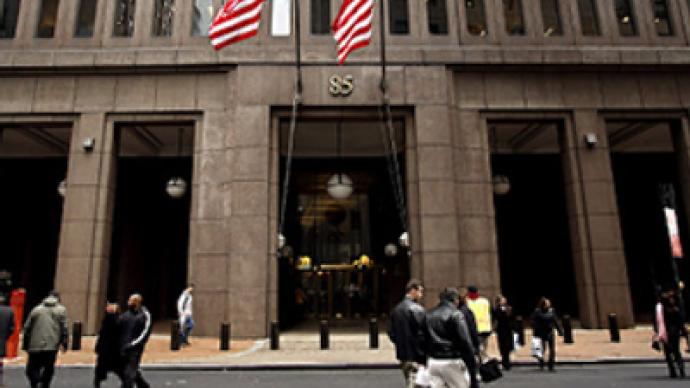The lucrative spread between ethics and the law

There is a strong element of ‘If it’s not right it’s wrong, and if it’s wrong it’s illegal. And if it’s not illegal it’s legal, and if it’s legal it’s right,’ in the way investment banks see the world.
The members of the US Congress Permanent Subcommittee on Investigations, and the senior executives from Goldman Sachs who they questioned during Tuesdays hearings, on the financial crisis and Goldman Sachs, almost certainly both went back to their respective dining facilities after the session with a common sentiment in their minds concerning those with whom they had been interacting – ‘Its life, Jim, but not as we know it.’
The interest for the rest of us was that the subject of the hearings, and the arena in which they found themselves virtually incapable of even talking about the same thing, runs to the very core of the of the impasse the parliamentary world comes to when dealing with the financial trading world, and vice versa. What is right or wrong doesn’t always equal what is legal or not, and in the world of financial trading the spread between a legal position and something which might be construed as a morally righteous one is invariably quite lucrative.
The subject of the questioning was the actions of Goldman during 2007 – whether or not, and by how much, it was shorting the residential mortgage market, while selling mortgage backed securities to investors, and whether or not this was unethical or a conflict of interest.
Ethicality is at the very core of the differing genetic makeup of Tuesday’s protagonists.
Ethicality for legislators, to some degree or another, will reflect what those who make them legislators will consider to be wrong or right. Quite often they will elect legislators on the premise that these will fix something that is perceived to be not right, and their frame of reference often defaults to seeing the world around them in terms of good and bad.
Ethicality for an investment bank is highly likely to be both less judgmental in moral terms, and far more likely to equate good and bad with returns on activities, and abstruse concepts such as right or wrong with something that is not their concern, and presumably doesn’t deliver much of a return.
A look at Goldman Sachs ‘Code of Business Conduct and Ethics’ is illustrative. A 4 page document, amended last May, it boldly asserts in its opening stanza a commitment to ‘to conduct our business in accordance with all applicable laws, rules and regulations and the highest ethical standards.’ It uses the words ethics, ethical and unethical a total of 13 times, 7 of these are references to ‘Appropriate Ethics Contacts,’ with ‘ethics’ used once in the heading, once in the statement saying what the policy is, and once whilst saying that the policy serves as the ethics policy required under section 406 of the Sarbanes-Oxley act with regard to senior financial officers. Elsewhere ‘ethical’ is used once in the sentence referred to above, and once elsewhere referring to an expectation that ‘our people to maintain high ethical standards in everything they do’ leaving a sole reference to unethical in stating ‘We do not seek competitive advantages through illegal or unethical business practices.’
Absolutely nowhere does it contain the slightest hint of what ethics might be, or what might be considered unethical, leaving the concept tantalisingly vague. Now, it doesn’t go much further with regard to laws, but with laws at least – notwithstanding the legal process – there is something fairly definite. Something to look at and provide a clearer frame of reference – when a company says it upholds the law you know that if it doesn’t then it is likely to be charged with something and found guilty.
So that left members of the US Congress Permanent Subcommittee on Investigations asking questions on essentially moral or ethical grounds, and getting responses on legal grounds – if they were lucky – or the responses hedging (if you will forgive the pun) the position. Senator Ted Kauffman quite deliciously gave away any legal question when he observed,
“I’m not saying there’s anything wrong with shorting. It’s fine – I’ve done it too. But isn’t it a conflict of interest if you’re shorting while selling long securities to your clients?”
Goldman CFO David Viniar, might just as well have been asked if he thought there was life on Mars when he replied “Not necessarily.” It was a perfect example of a good trading man watching someone give away a position in order to get him to buy, but figuring he didn’t want the item on offer. Moral positions don’t pay bonuses.
Senator Carl Levin, the Subcommittee Chairman, got no further with Viniar when he pushed the ethical line, but he did open up a degree of incomprehension.
Levin: “When Goldman Sachs puts its name on a security, does a client have the right to think it’s a good security, that the investment will succeed?”
Viniar: “I’m not sure what succeed means, Mr Chairman.”
Levin: “I mean is it a good security?”
Viniar: “It depends what good means.”
Levin: “I’m going to keep using that word. It means that it’s good. That it’s not s**t.”
Viniar: “Well, if someone buys a security from us at 20 cents in the dollar, we’re not certifying that it’s a great piece of paper. But the buyer thinks it’s worth more than 20 cents.”
That essentially brings the issue back to the legal concept ‘caveat emptor’ because there isn’t much else in terms of supporting the moral position with legal teeth on many issues. Buyers buy what they want, and pay the price they think they need to or go without the item, and sellers get whatever price they think they can for the product. There is no golden rule saying that product X has a value of Y where X and Y have a specific value.
Those legal teeth have been refined, if not whittled away, in the Anglo-Saxon world, at least, for more than a generation, in the name of deregulation, industry self regulation, and generally freeing up the private sector to generate more wealth. This it has done – even if the distribution of the proceeds have been less than equitable – and it is this fact alone which provides the bulk of the argument against the imposition of heavier regulation, particularly in the financial sector. But at the same time it was a system failure, combined with diminished regulatory oversight which saw the advent of the global financial crisis which is still in play, and has seen trillions of dollars outlaid by governments for propping up economies and bailing out banks and financial institutions – when other arguably more morally righteous causes have been starved of funds in the name of economic efficiency or productivity for more than a generation.
To expect any investment bank to have a nuanced understanding of ethics or to be proactive about it is profoundly unrealistic. Their first responsibility is to those they manage money for, then their shareholders, and then the self interest of those doing the work (and their bonuses). All will be quite demanding, and the default setting will be to make the money and ask questions later – with ethical questions coming down the list. Cash is tangible and morality is not – although the marketing and PR worlds may bring it closer sometimes. Investment banks will look for some sort of tangible measure of morality, and if the law is all there is then the law is the rule. Some sort of superior measure which might cost money begs a marginal utility question for them.
It will be hearings like these which will play a large part in determining how heavy or light any new regulation is – particularly in the developed economies – and how much traction they generate in terms of creating public demand for bringing the legal position closer to the ethical one. But until they do so, expecting investment bankers to put an ethical question first is akin to expecting aid donations to deliver a cash dividend, and meetings between those looking at moral positions and those looking at legal positions will have a sense of the surreal.
James Blake: RT Business













